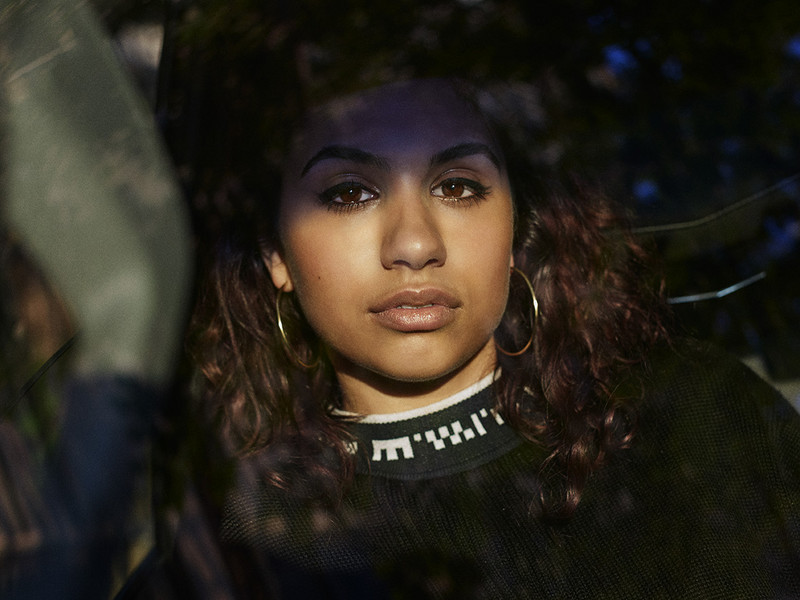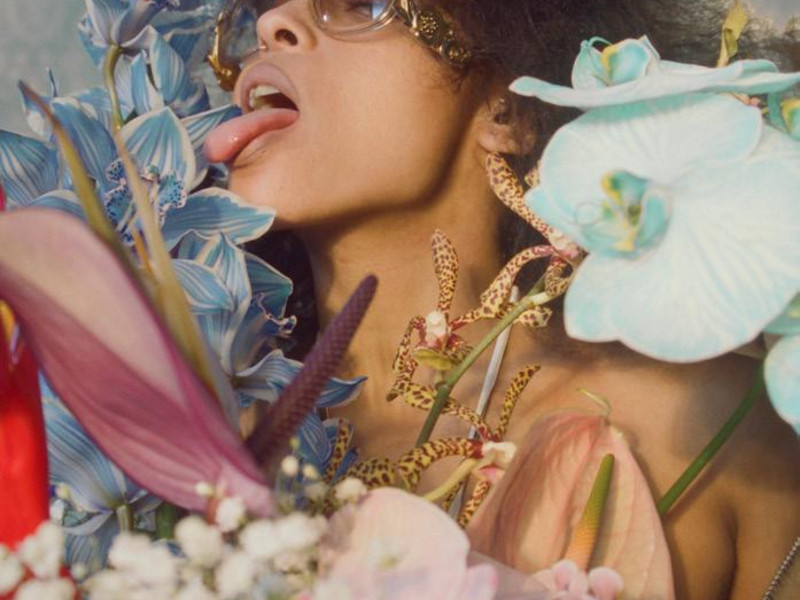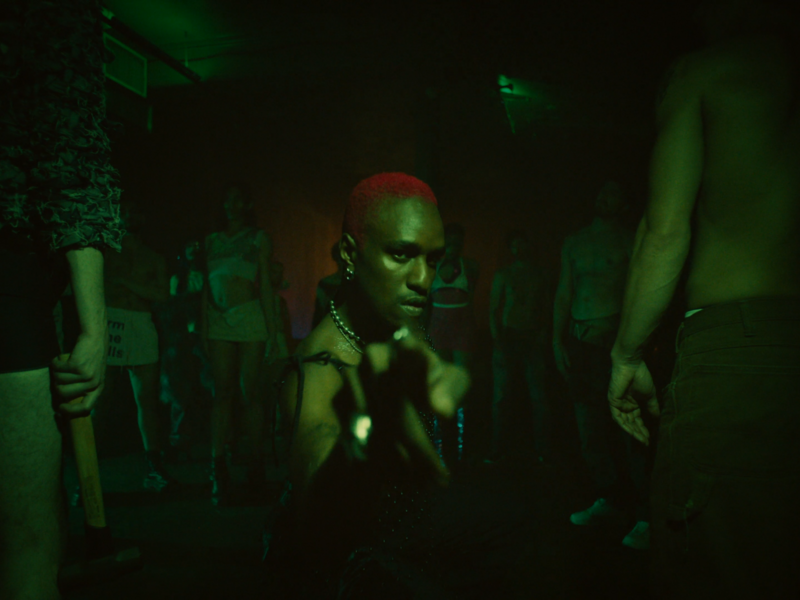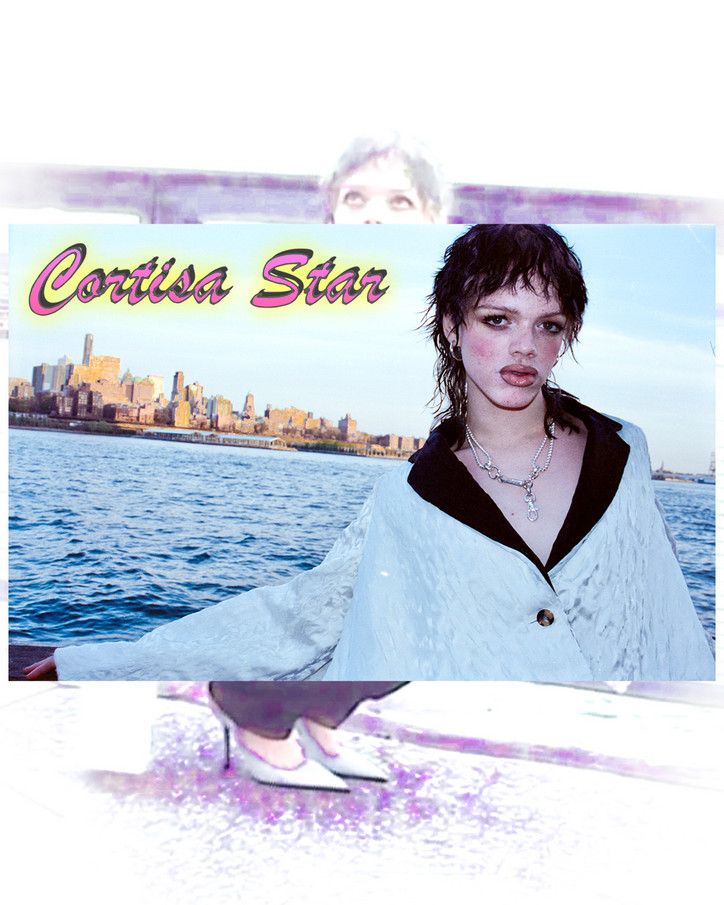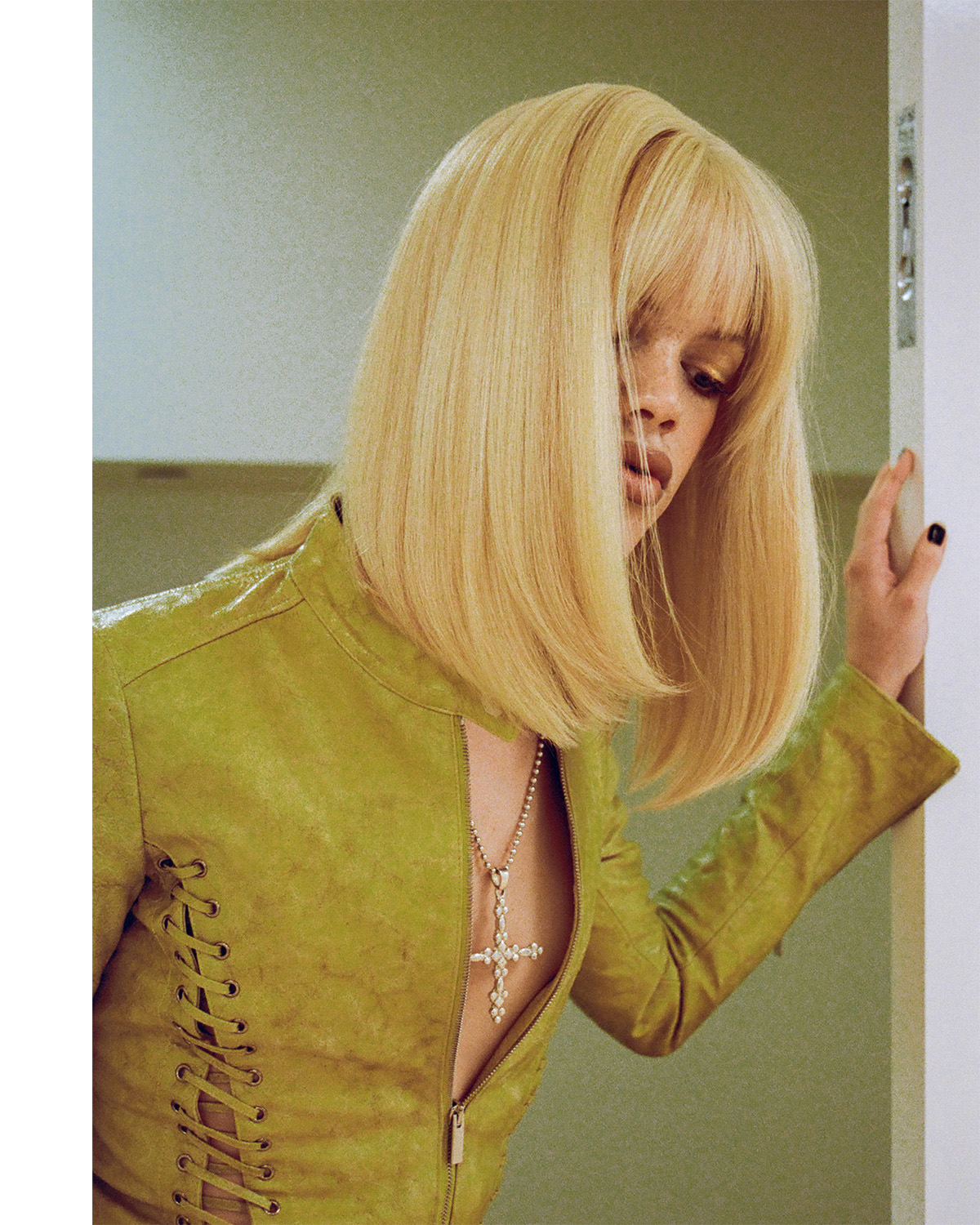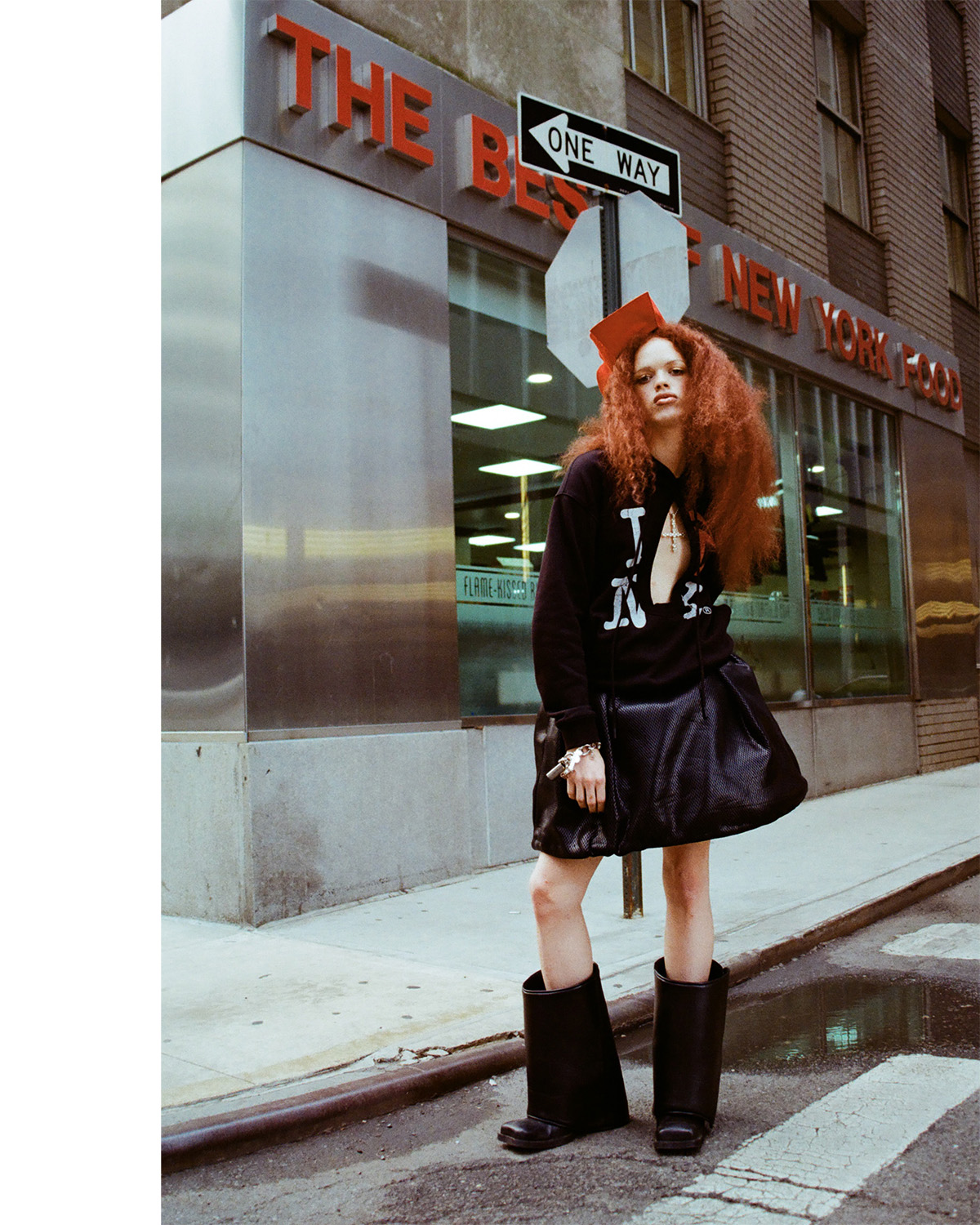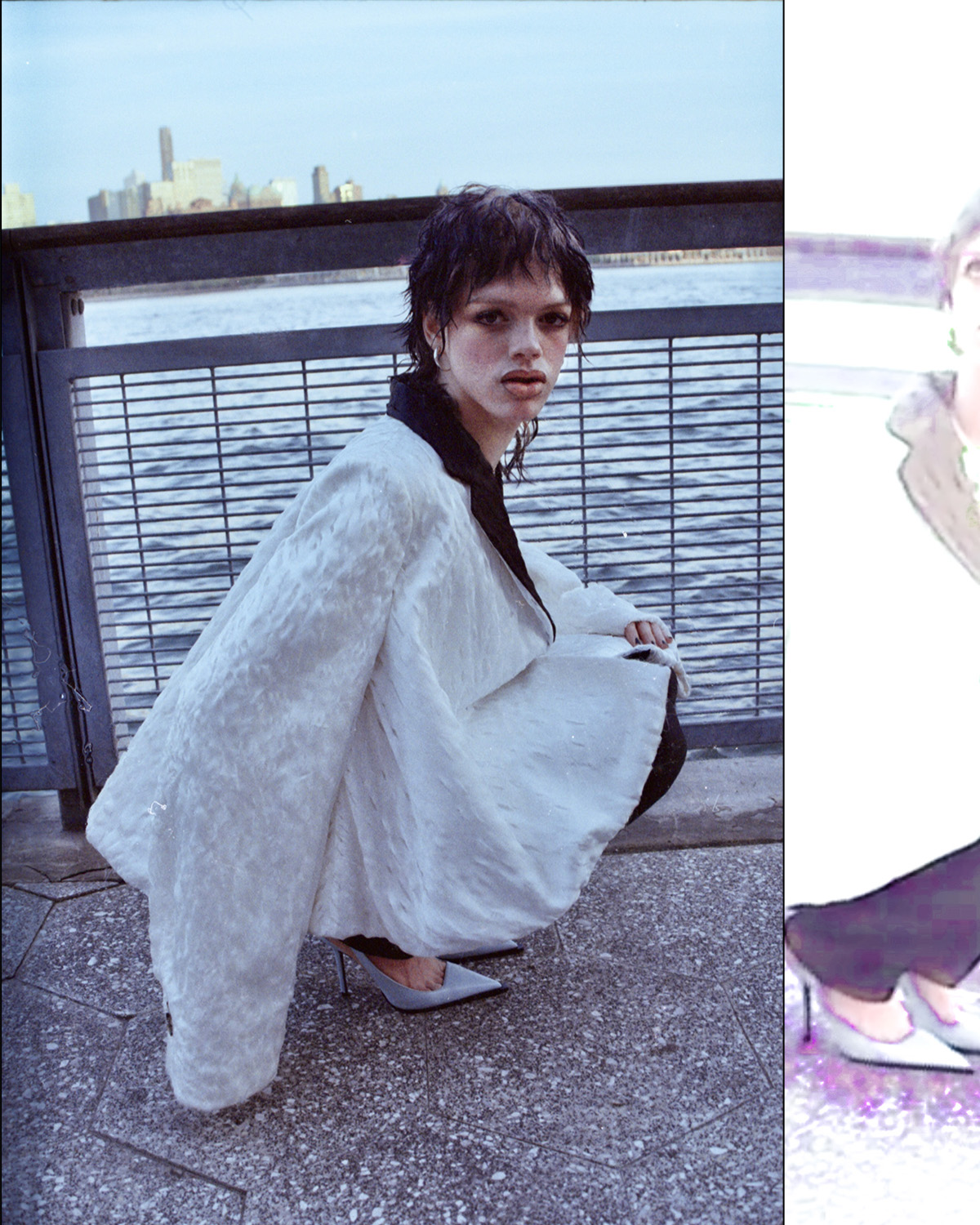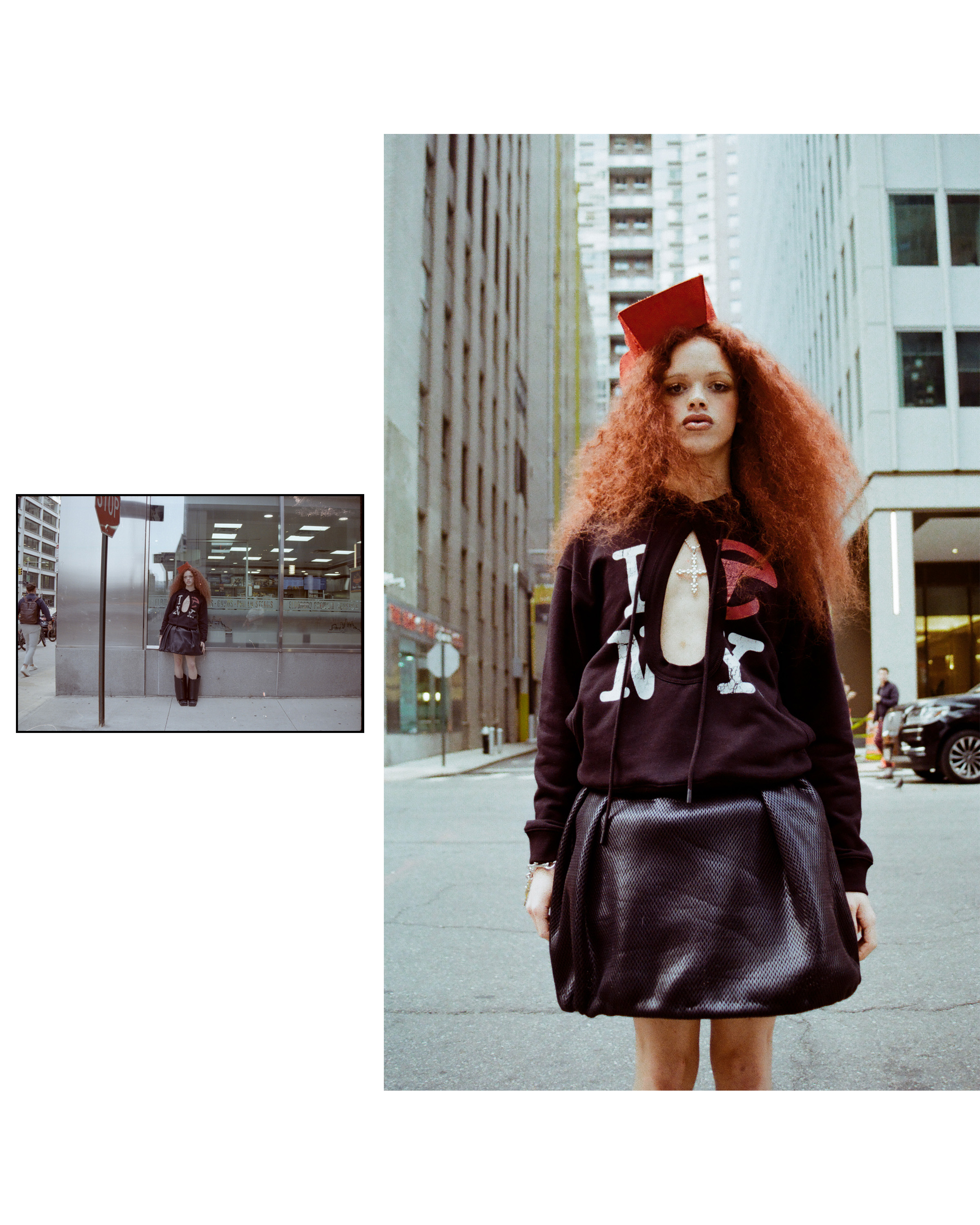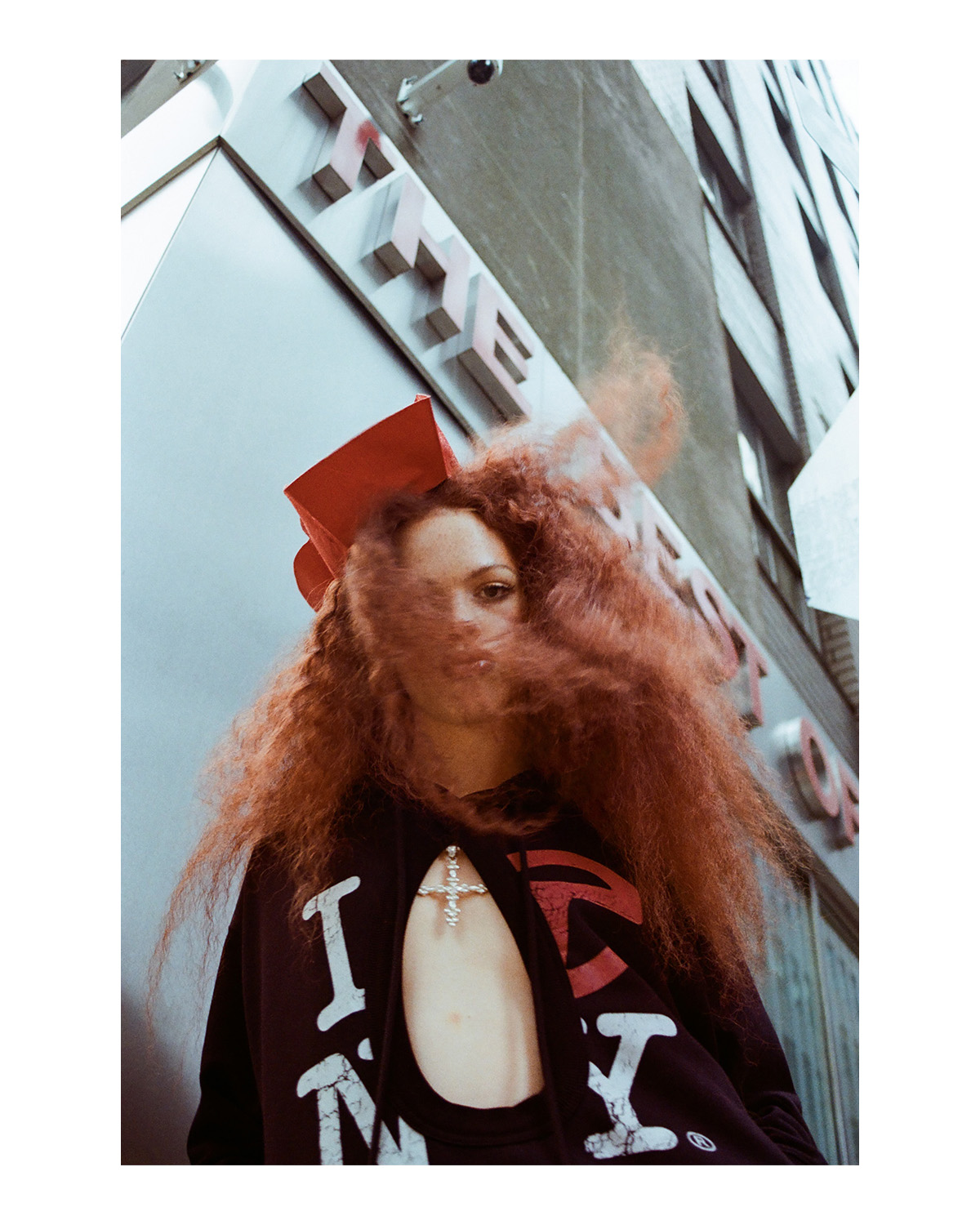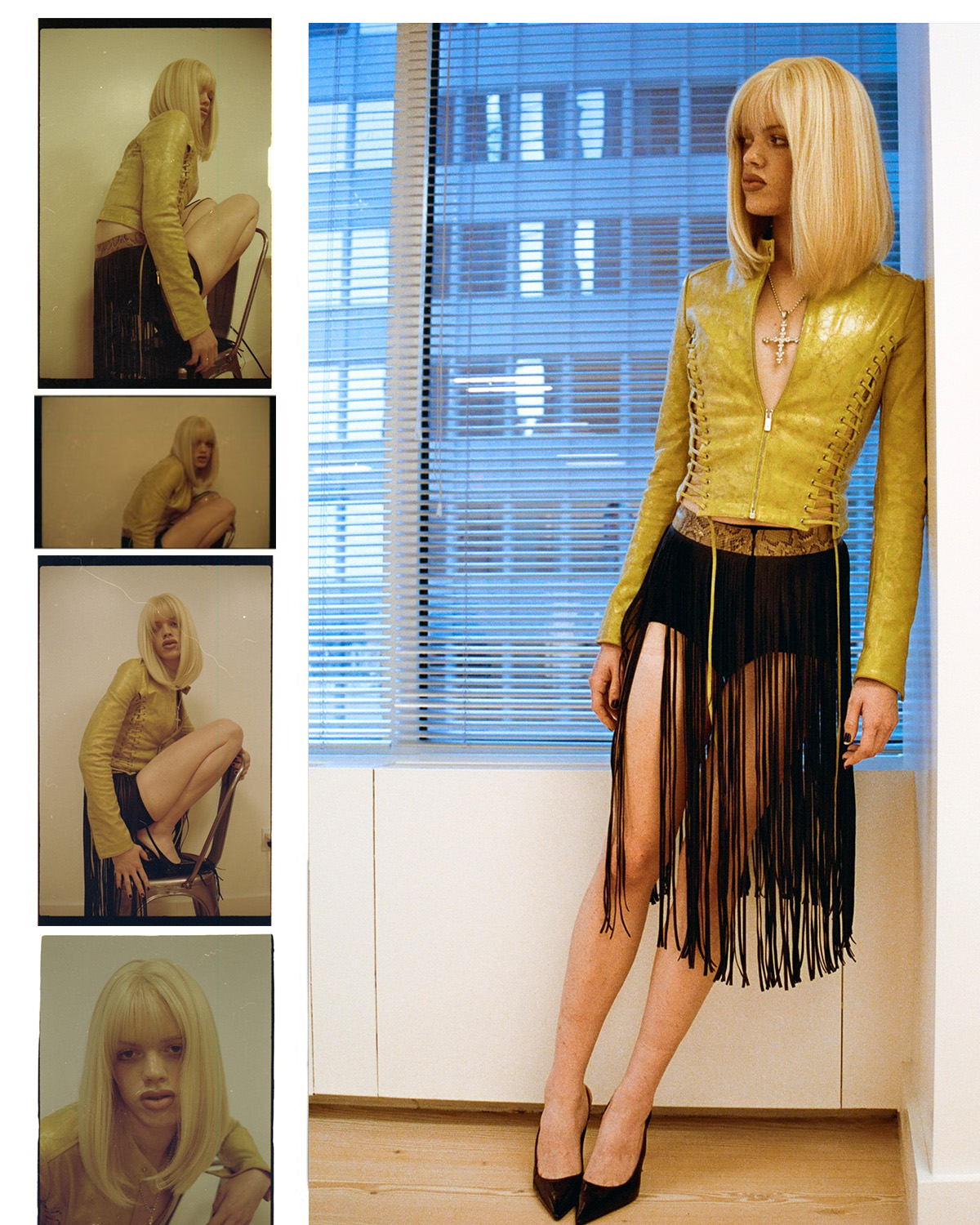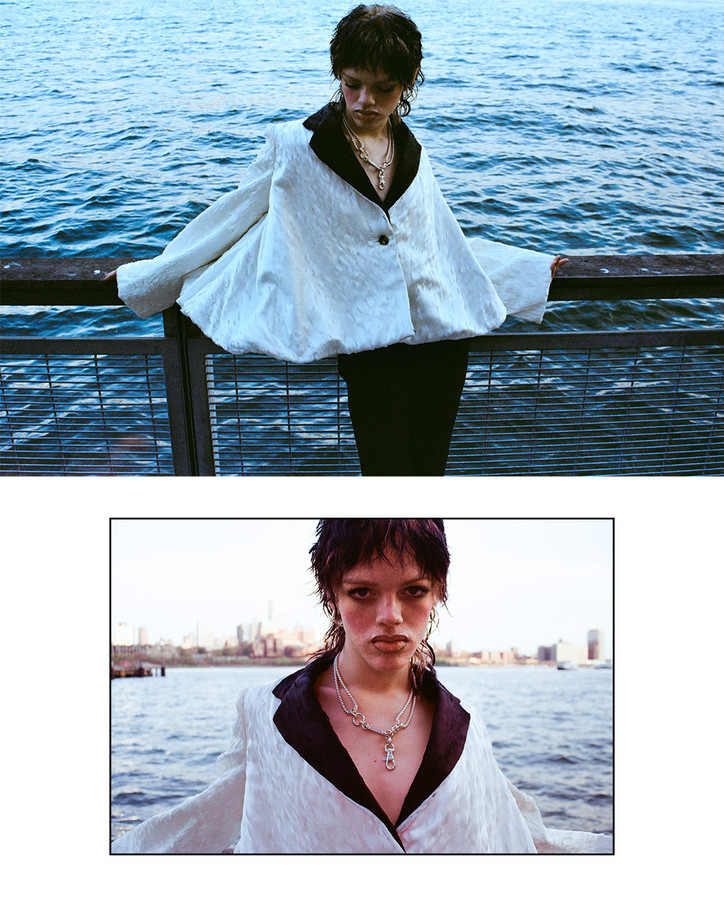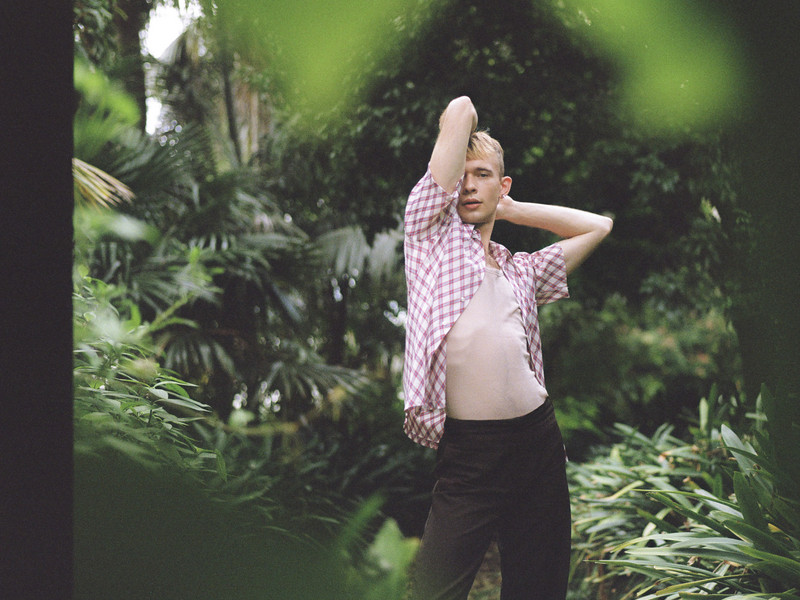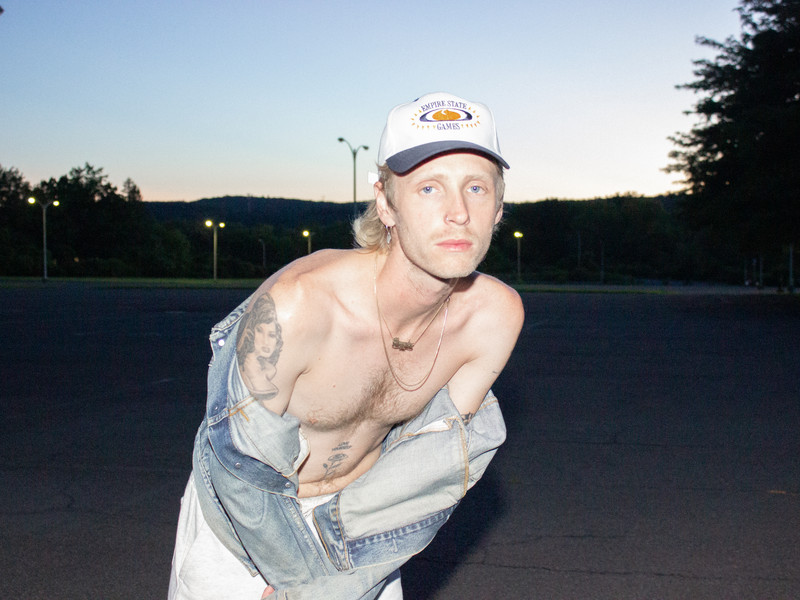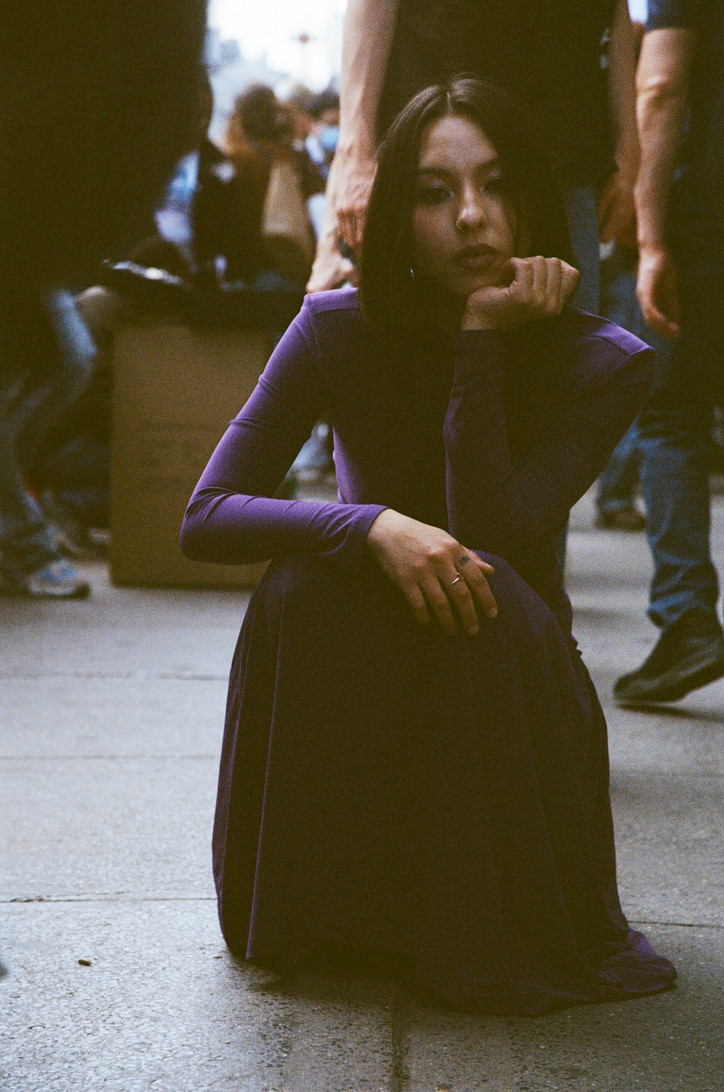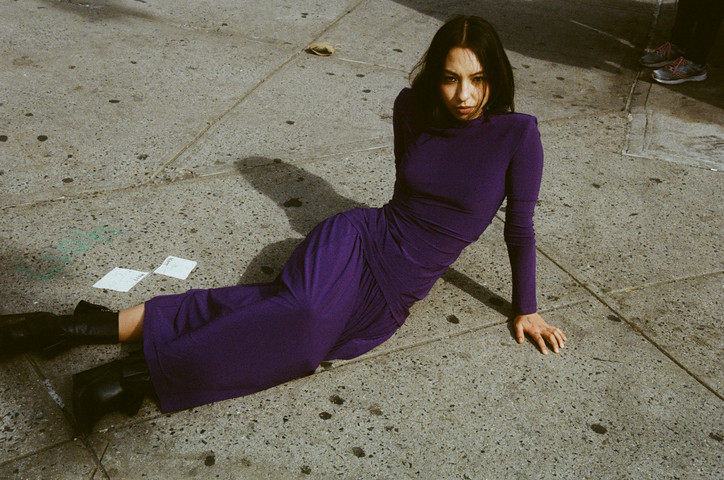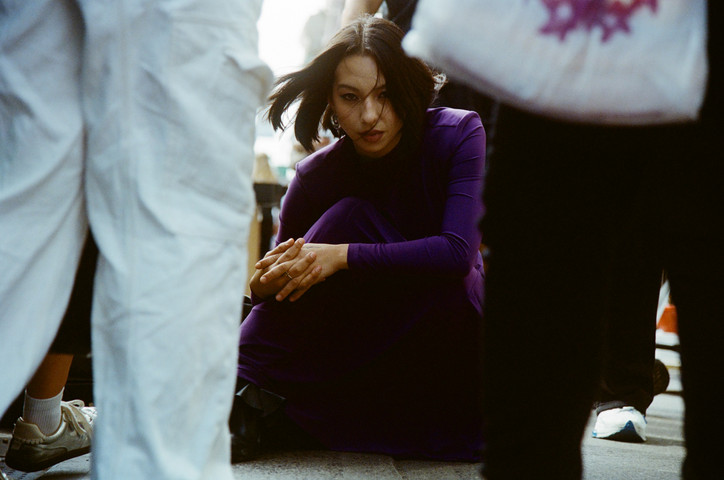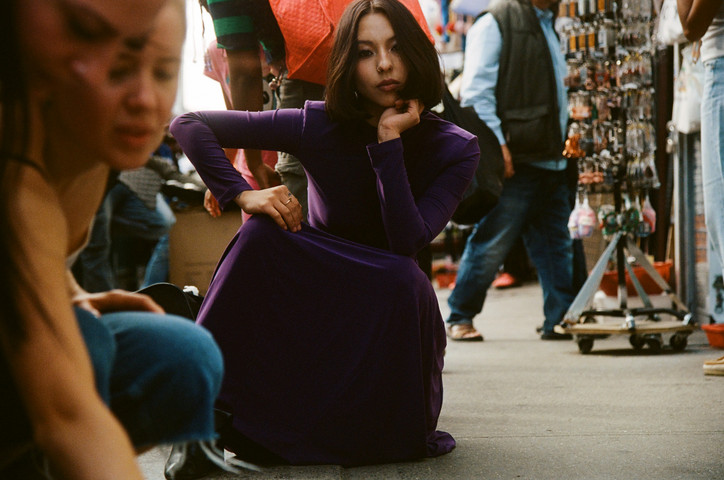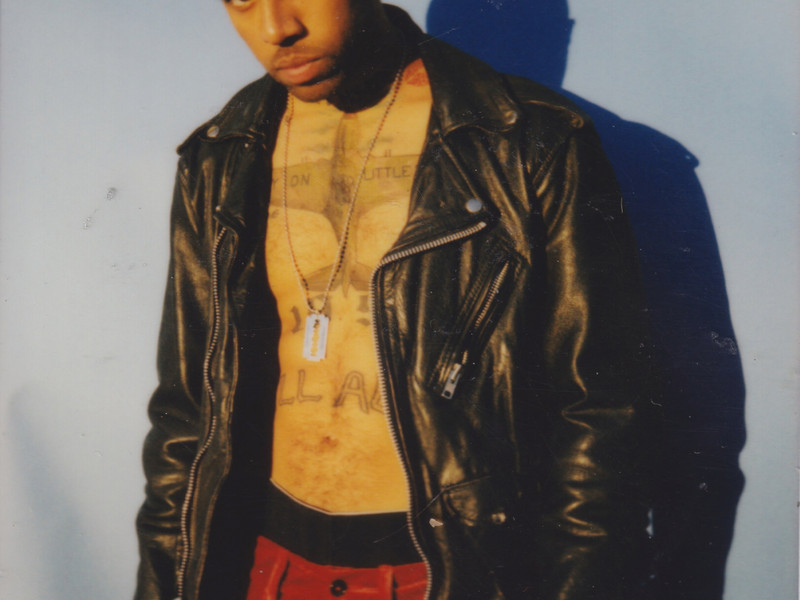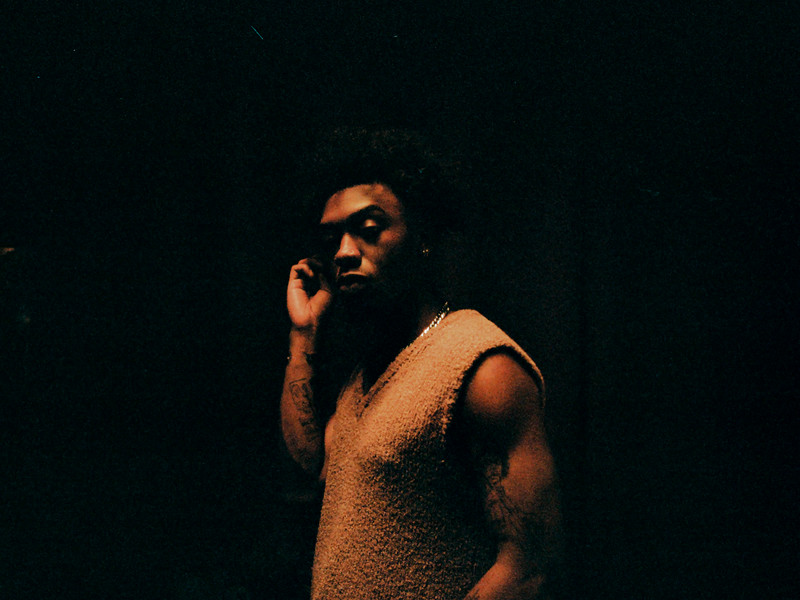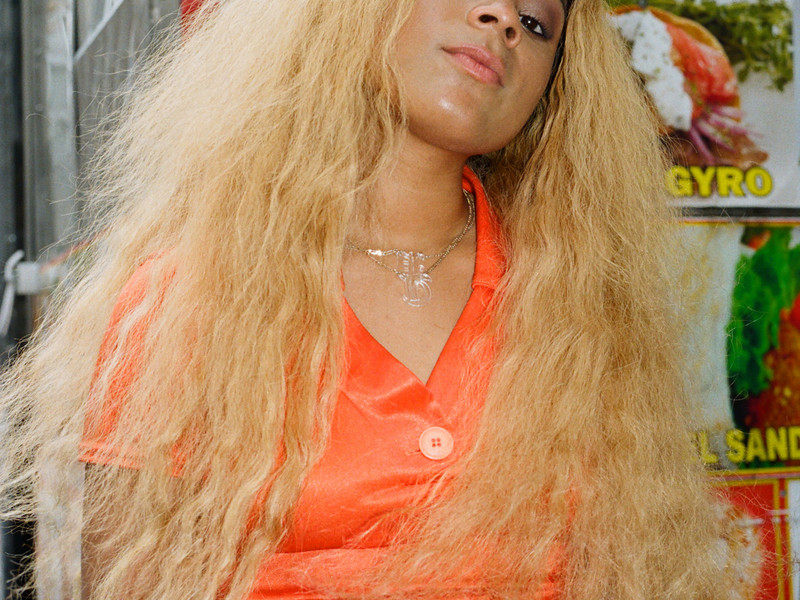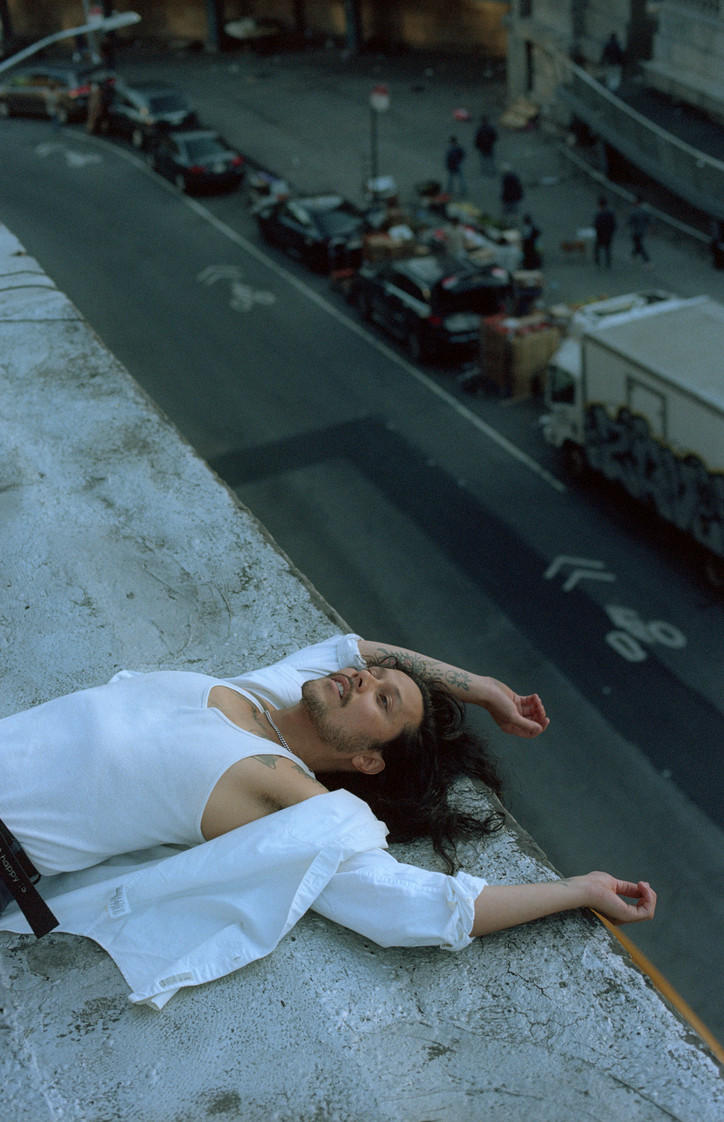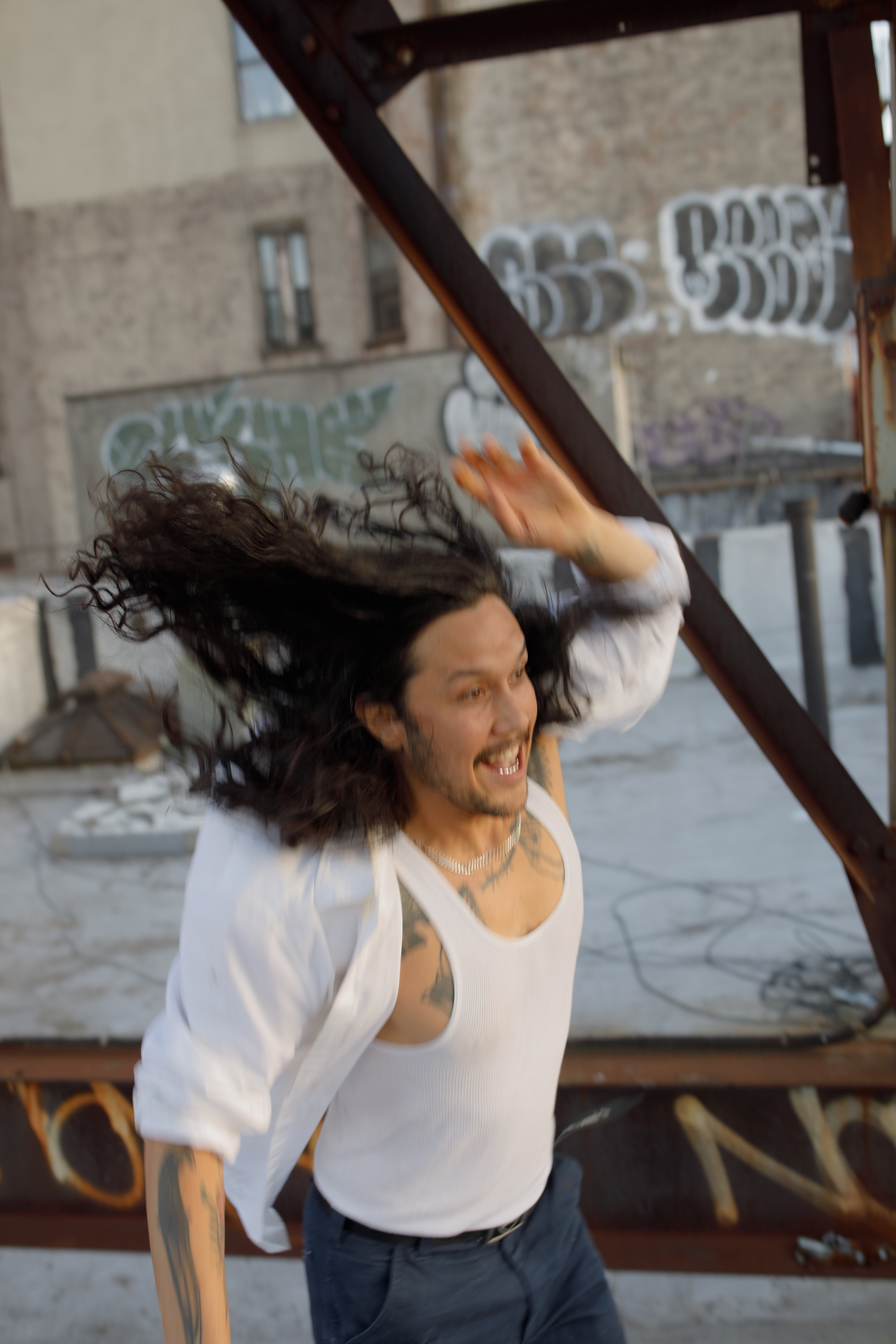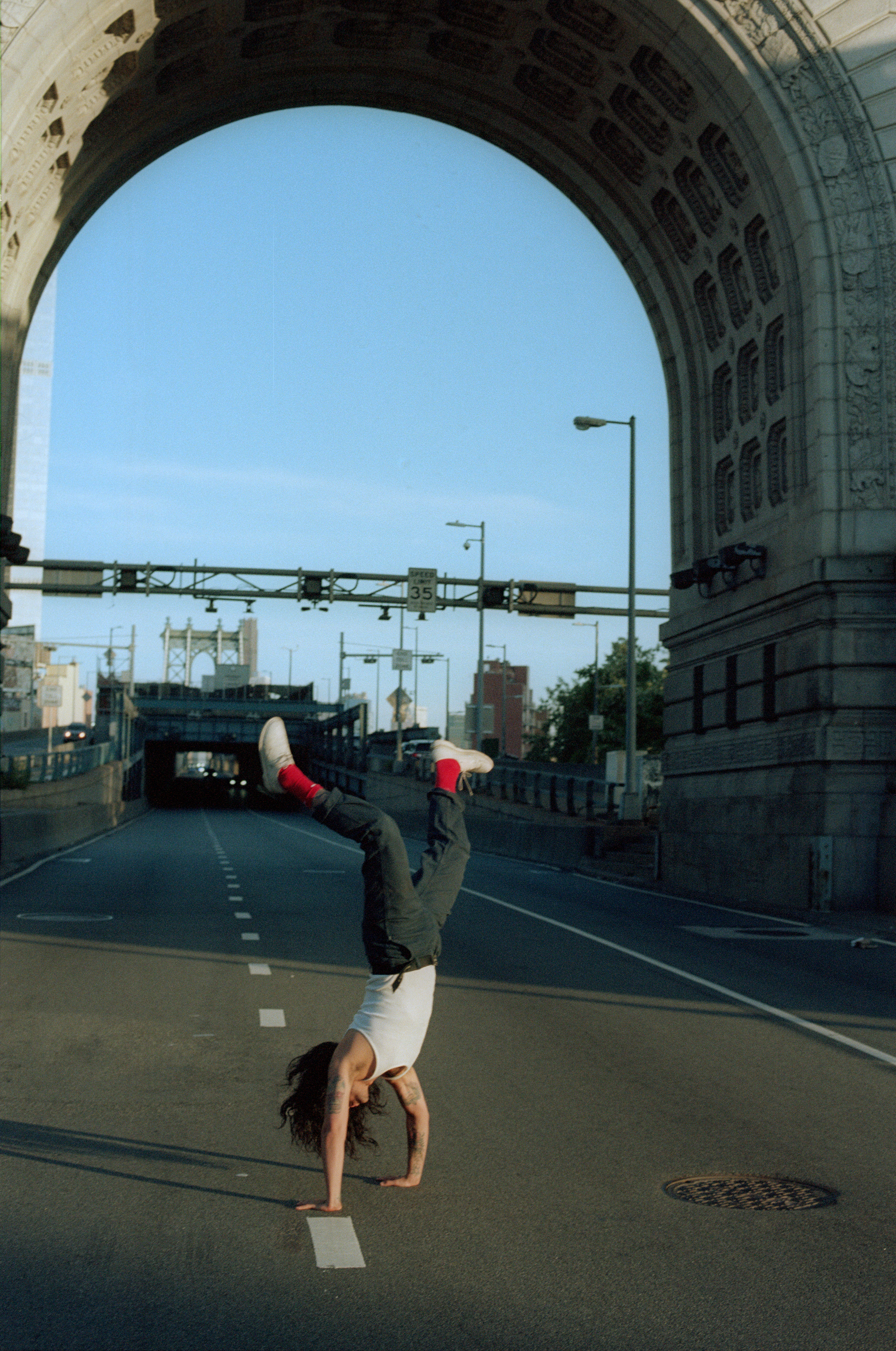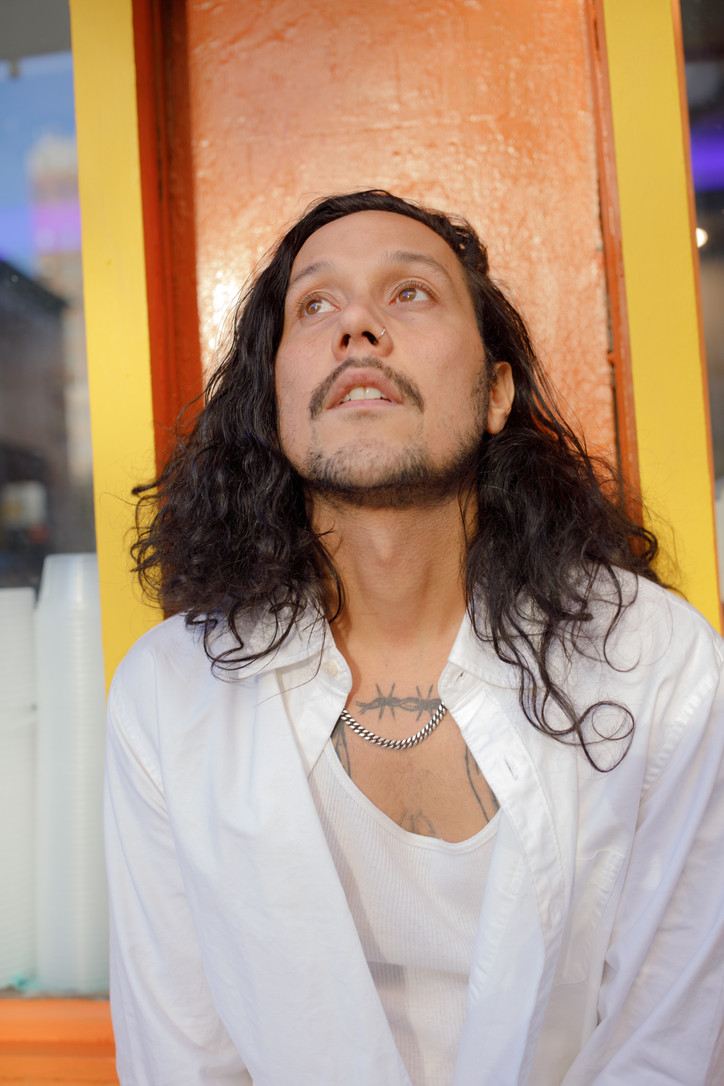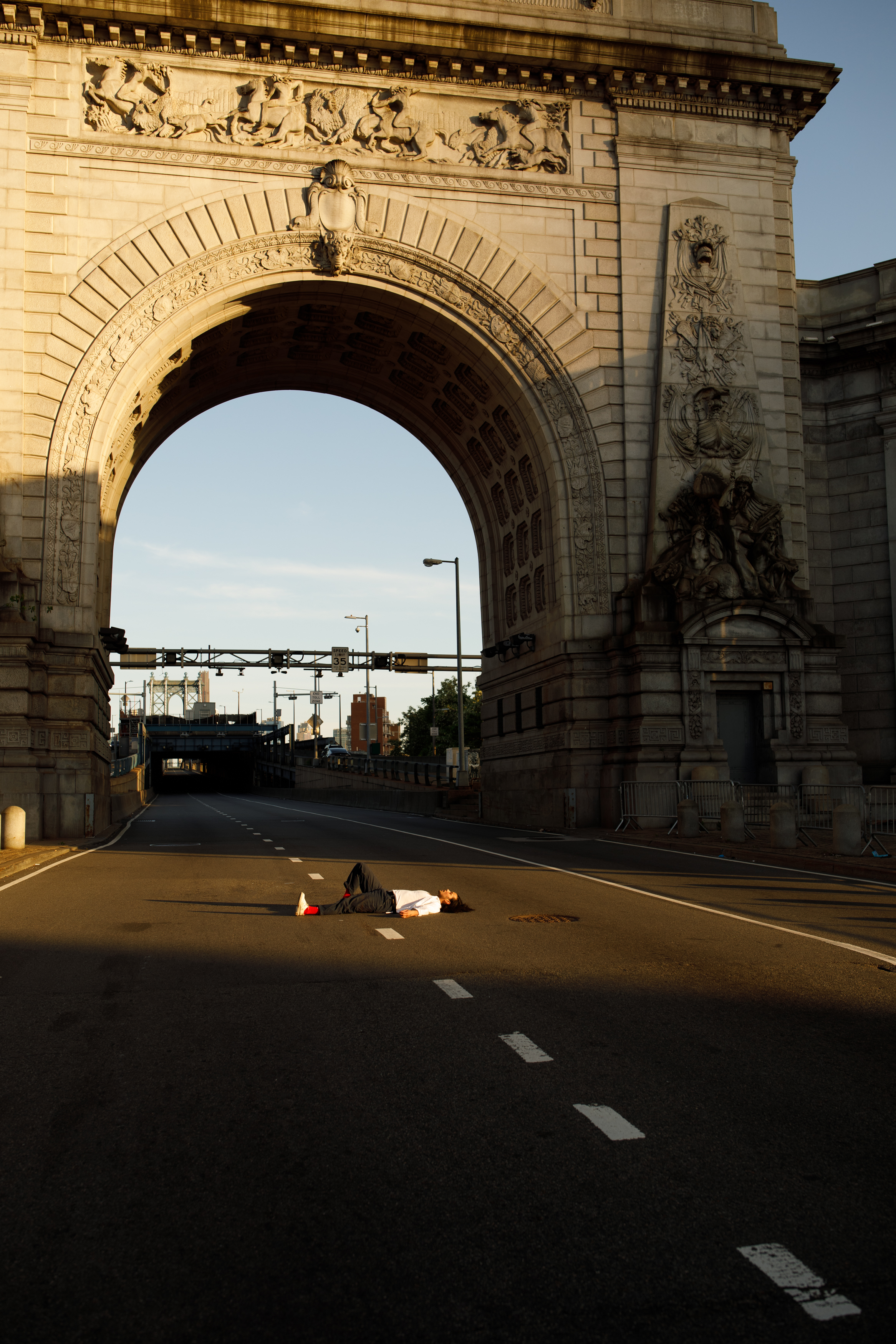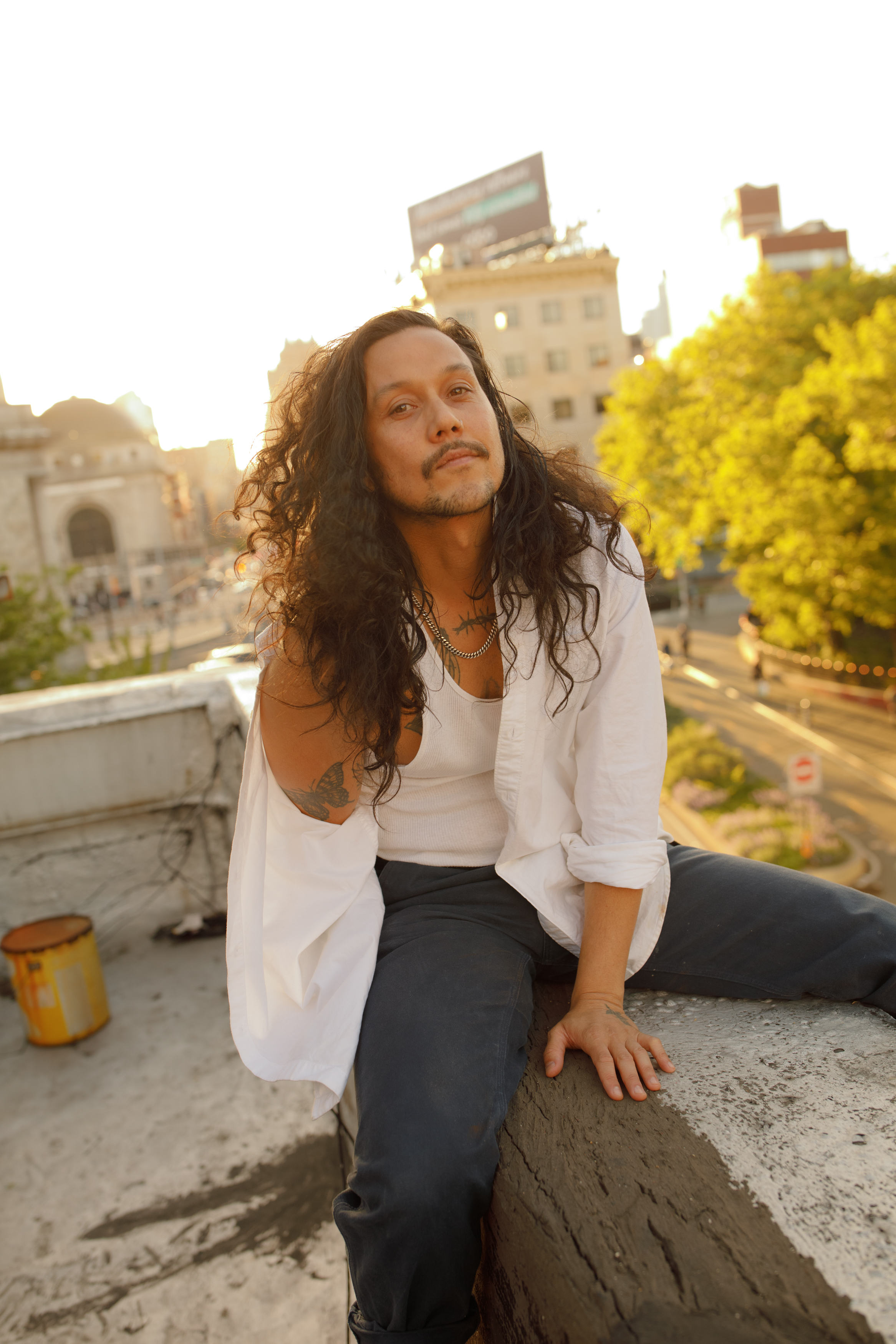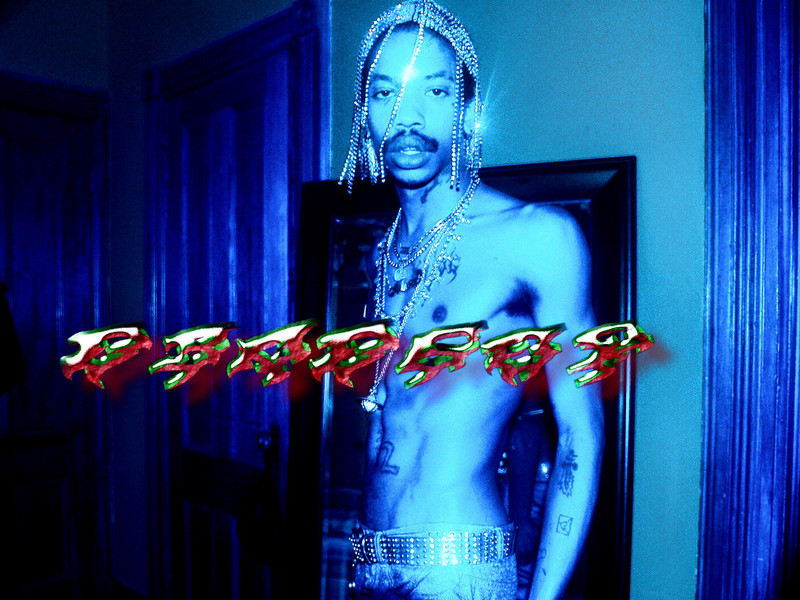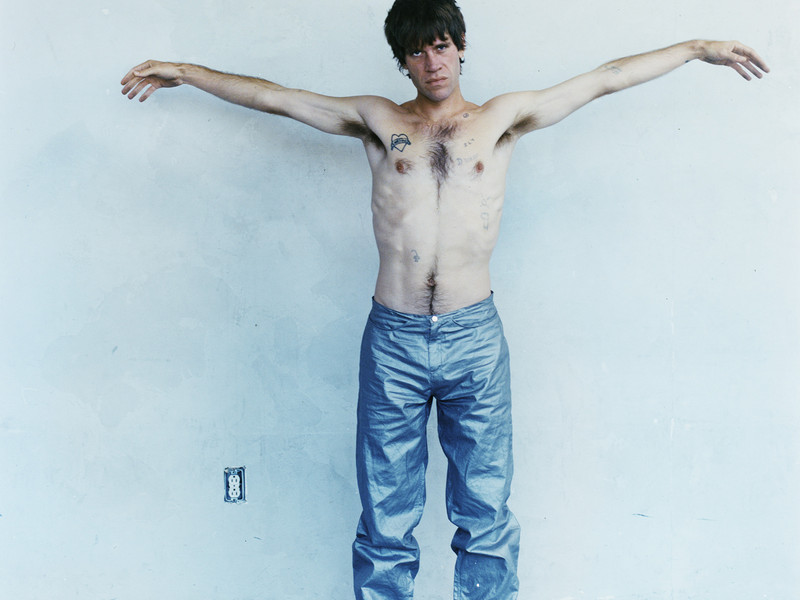Diana Gordon Gets Real
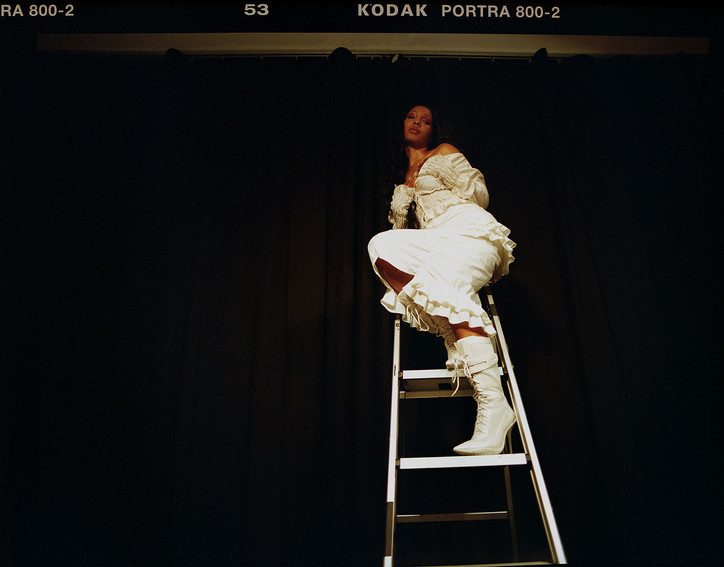
Of course, working with Beyoncé was a total dream come true for the Queens-native, who grew up with posters of Destiny’s Child plastered on her walls. But it’s been a long road for Gordon—one that includes an abusive childhood, botched record deals and a reunion with her long-lost brother on the streets of Los Angeles—to get to her debut solo record.
Released earlier this month, Pure is 16 minutes of ‘90s-tinged R&B with references to Kool Aid and E.T. But underneath Diana’s catchy pop hooks is her own, much darker story. Tracks like “Wolverine” that on the surface sound like they’re destined for never-ending airplay, are actually subtle references to the singer’s trauma—and proof that she survived it.
We sat down with the artist to talk about the EP and why she chose to be so open.
Tell me about your EP Pure.
The EP is about my childhood and my family. I had a brother who was missing and last September, I actually found him living on the street because he’s schizophrenic. But when I saw him for the first time and really looked at him, I could just see all of the years of trauma in his face. It was like, ‘This is what happens when children are abused.’ At that point, I decided I had to tell my story. I mean, I’ve been working in music for the last 12 years, and in all of that, I’ve never really given anyone a look inside my life. Pure is for all the kids who have really suffered.
Was it difficult to revisit some of your most traumatic memories? I imagine when you’re writing about something like trauma, it can be really difficult to have to get back into that headspace.
It actually wasn’t like that for me, especially because in telling the story, I used the positive things I attached myself to when I was smaller to survive, like E.T. and Harriet The Spy. Those were the things that inspired me. So, it’s more about childhood innocence than it is the negativity. But I also tried not to be so judge-y. “Too Young” is about my mom and really trying to empathize with her, and humanize her, instead of blame her, even though it was really hard to live with her. I just wanted to take a different approach. But the whole record wasn’t like, ‘Oh I’m so angry, I’m so sad.’ It’s more like, ‘There were happy days and let’s focus on those.’ But I also want to tell my story.
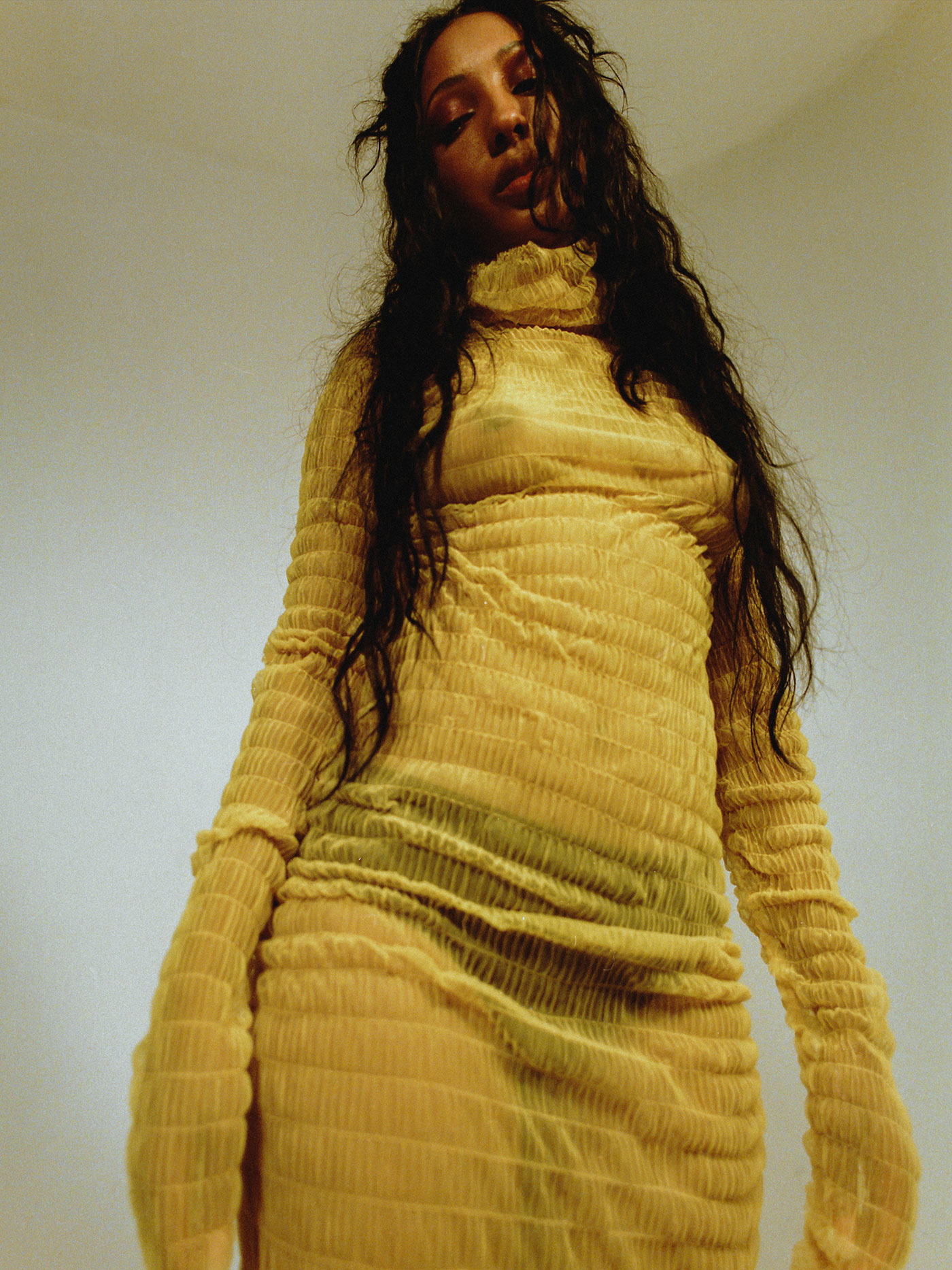
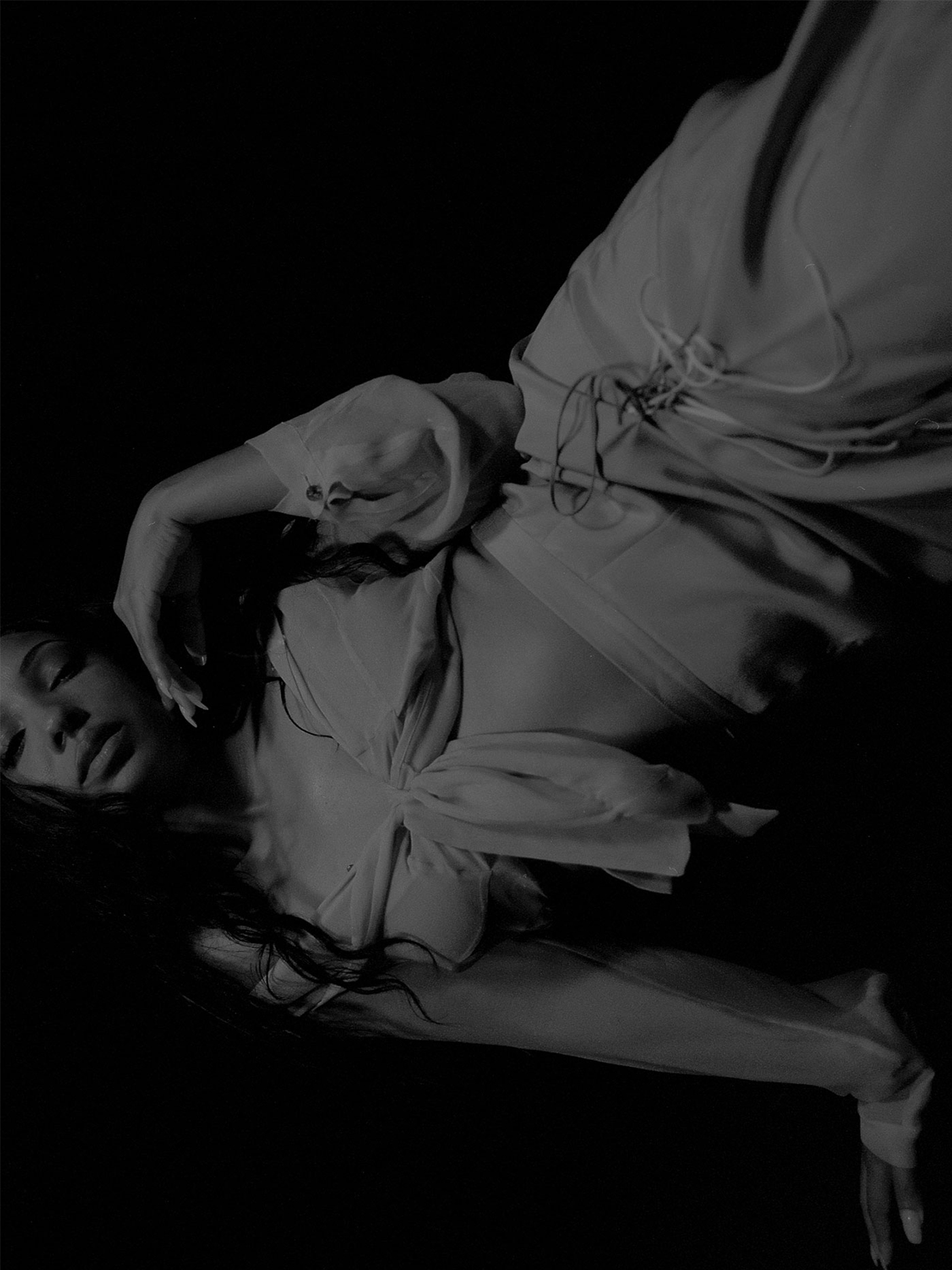
The record definitely has a sort of sweet, nostalgic quality to it—songs like “Kool Aid” reminded me of growing up in the ‘90s. So, even though you’re obviously processing some dark emotions on the album, it has a pretty happy overall sound.
Right. Yeah, I mean, I’ve cried about my childhood, I’ve talked about it, I’ve gone to therapy about it. So, Pure really wasn’t the space for me to do that. I just wanted to look at my life and all of the things that came out of the abuse, without getting lost in the negativity. Like, “Wolverine”—I only used to read comics growing up because my step-dad was such a collector. My bedroom was in the basement of my house, and there were holes in the wall where you could see outside. So, it was always cold in the winter because, obviously, it’s New York City, and since we didn’t have a TV, me and my sister would huddle under this Superman blanket and read these comics. That’s the happy part of the memory for me—how we would lose ourselves in these comic books.
Were you at all nervous about letting people into such personal experiences?
I’m kind of a recluse, so it does give me anxiety to do something like this, but I always feel like I have to be my most authentic, most honest self. I’m a nurturer and a big sister by nature, so there’s nothing for me to talk about if I’m not telling my truth. But it’s still hard to show your flaws. It’s just, to understand me is to understand where I’ve come from.
Right. Why did you decide to make this EP now, though?
Before I made this project, and right before I found my brother, I had a massive nervous breakdown. I was just miserable and feeling sorry for myself. It literally got to the point where I started getting these crippling headaches where I actually thought my head was going to explode. I lost the ability to eat and walk for a whole month. I mean, that’s how powerful anxiety is. I used to think like, ‘Man up, what’s wrong with you?’ But I think all of the years of holding it in and just smiling for the camera created a massive panic in me, and it wasn’t until I decided to do this project that actually it started to get better.
Now that you are an adult and you’ve spent this time looking back at your childhood, are there certain things about yourself that you finally realize stem from those experiences?
Oh totally. I mean, I’ve tried so hard my entire life to be a people pleaser because I was always so scared of conflict as a kid. I got hit for everything. So, I’ve gone through my whole life not listening to my gut and making decisions based on my trauma. I’ve made terrible choices because of that fear and anxiety. Even when I think back to my earliest record deals, I said yes to things I didn’t want to do, just because I didn’t know any better. So, I got taken advantage of a lot, but I just kept going. I feel like, in my life, I’ve picked up the pieces about 15 times now. It was like, ‘Okay, this happened, now I need to move on and learn the same lessons over and over, until they stick.’ And I think they have finally started to.
You mention being taken advantage of in record deals, and you’ve spent so much time doing things for other people—even in the literal sense of writing music for other artists. Was this EP a chance for you to finally take back that power?
I don’t know. Writing for other people allowed me to pay my bills, but also, stay busy while still fulfilling that part of me that knew there was greatness deep down there. And I think I self-sabotaged a lot. I mean, I was always very determined because I felt like music was the only thing I had—I based my entire self worth on what was happening with my music. So, any time things didn’t go my way, which was all the time, it was full on depression. Working with other people allowed me a sort of safe distance from that. But it wasn’t always creatively fulfilling.
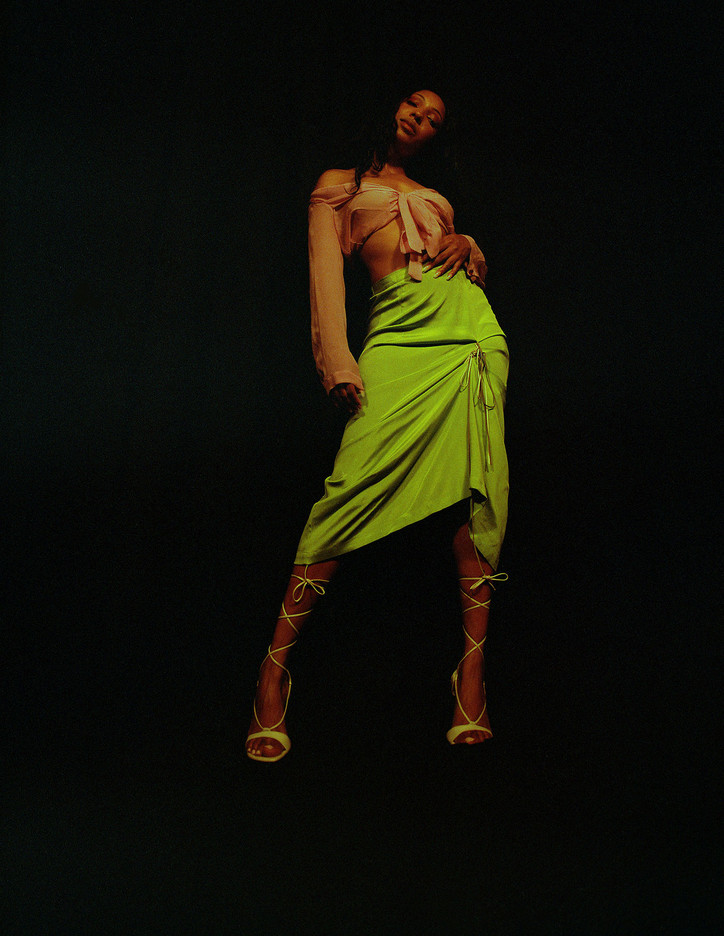
Now that you are writing for yourself, and in a such an honest way, what do expect people to take from the record?
Honestly, it was just an attempt to connect people. In this day in age, and especially with social media, we all have such a hard time showing everything—all the little, different parts of ourselves — and admitting when things aren’t perfect. I talk about this on “Moment To Myself,” but it’s just always been hard for me to admit that something’s wrong. Everyone thinks, ‘Oh Diana, she’s okay. She’s the strong one. She’s over there writing for Beyoncé.” So, this was my attempt at being open and honest with people, and myself—like, yeah, I am actually hurting over here. But I’m going to continue putting on a brave face. We’re all trying to get by here.
What’s next for you?
I’ll be doing a few shows [in New York and L.A. this October]. But really, I just want to travel. I need to do the whole Eat, Pray, Love thing and just be Julia Roberts.
